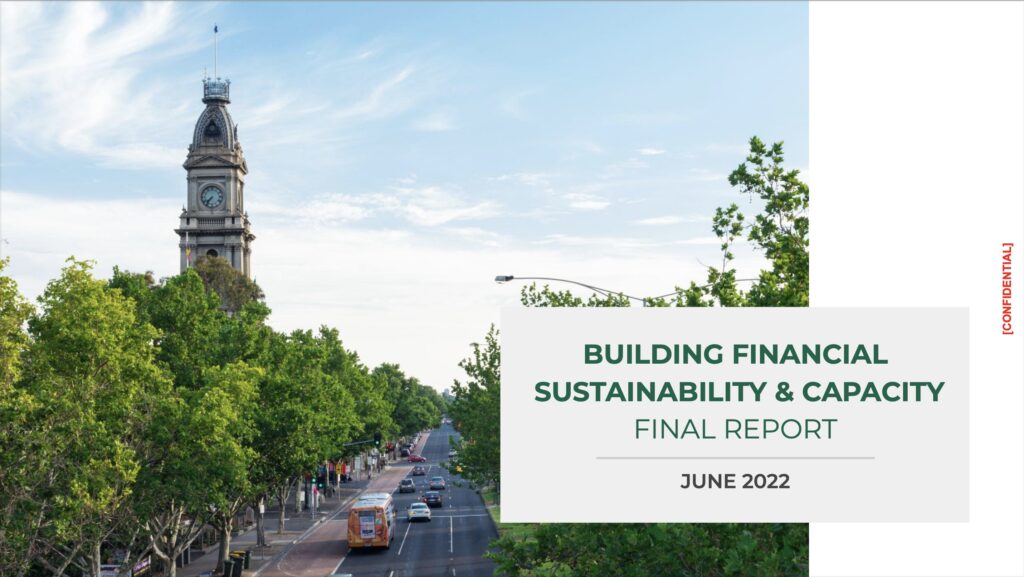The City of Yarra have released the “AtticusNow report” as part of the minutes of the council meeting from 9th July 2024.
The report represents two months of work conducted by the consultant in collaboration with Council Officers, in April and May 2022. In this article, we highlight how the report supports parking reform, which can deliver additional revenue of over $40 million per year, with income derived from commuters, not residents.
The executive summary rightly points out that some services have a high degree of privately captured benefits – we highlight that this particularly applies to the provision of on-street parking services, which are a private good.
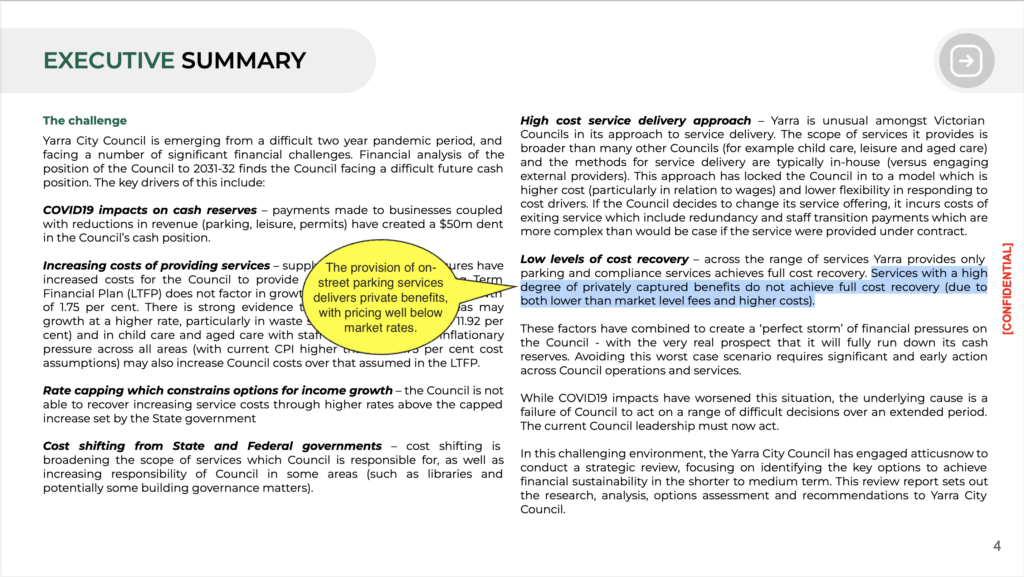
The executive summary identifies “parking” as a priority major initiative – we highlight that the revenue opportunity is more than $40 million per year, with income being derived from commuters, not residents.
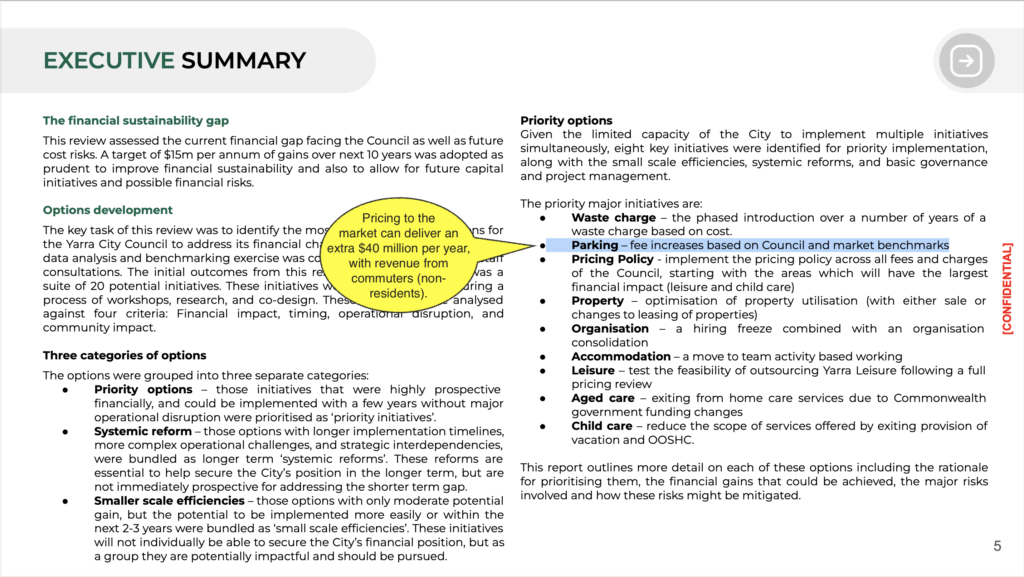
The implementation map suggests “parking fee increase” but this is a minor opportunity because it only applies to the less than 3,000 metered parking bays. The major opportunity is in applying the Pricing Policy to the more than 30,000 on-street parking bays which are presently given away for free.
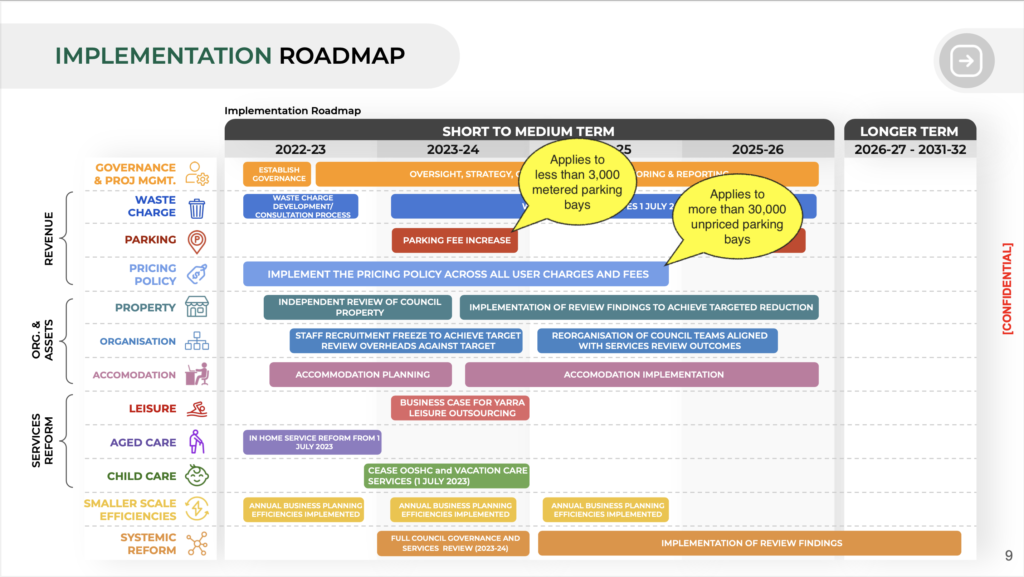
The report correctly identifies that parking spaces represent a major revenue source, but incorrectly states that revenue (from metered parking on shopping streets) is threatened by reallocation of space to bike lanes or open space. This statement isn’t correct because metered parking bays can be relocated to the first 10 bays on each side street, thus maintaining the revenue.
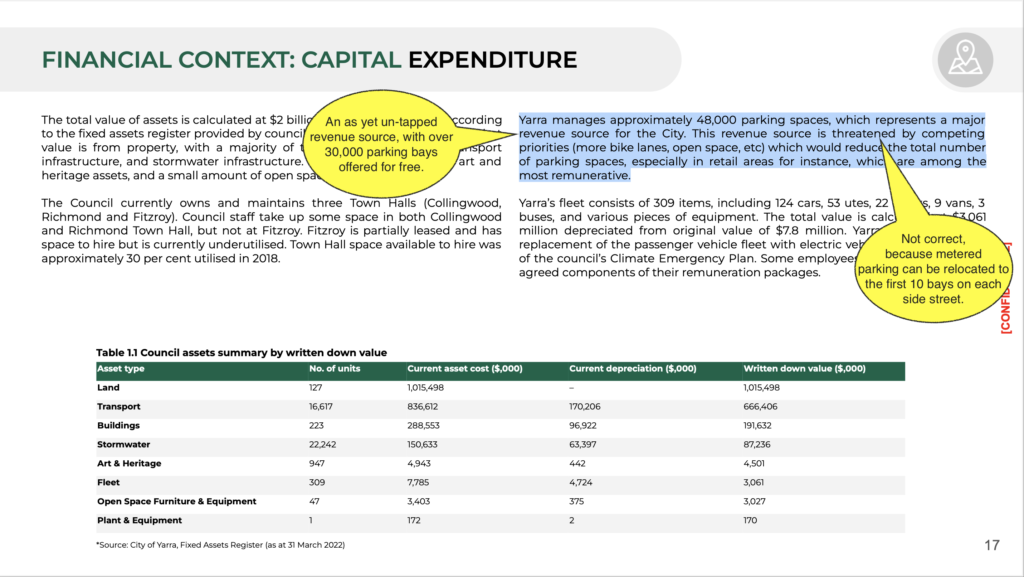
The report correctly identifies that “increase parking fees” is a high level option, but incorrectly suggests that increases could negatively impact on businesses. The opposite is true. Parking reform acts to increase patronage to businesses, in several ways:
- Adopting digital parking permits, and properly pricing all-day parking, prevents all the parking bays near shops from being taken by commuters. Instead, many more bays can be protected for use by shoppers, via free 2P parking.
- Adopting demand responsive pricing for parking meters ensures that shoppers are charged the minimum possible fee that is required to make sure that a couple of metered parking bays are vacant on each block, at any time of the day. At peak periods shoppers can be confident that they can find a park, while at off-peak periods shoppers can be confident that they are not paying an unnecessarily high rate.
- Reallocating space on shopping streets to wider footpaths, trees, and protected bike lanes, means that shops are safely and enjoyably accessible for the increasing numbers of people who walk, bike, or take public transport. With metered parking relocated to adjacent side streets, people who drive can still do so.
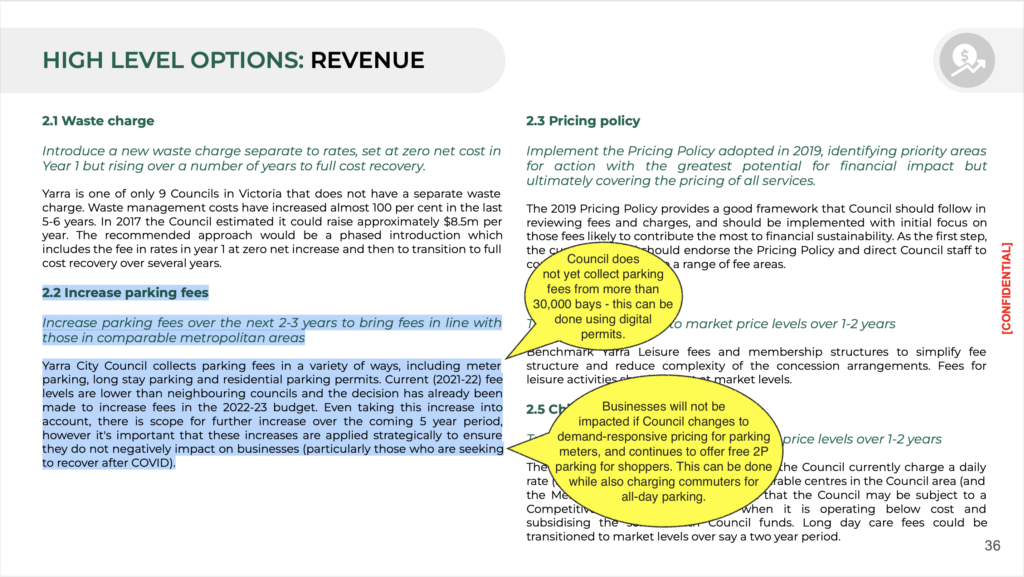
Later in the report, the consultants rightly suggest introducing parking fees where there are currently zero costs – we highlight that Council does not yet collect any parking fees from more than 30,000 parking bays, and that this can be done using digital permits and pay-by-app. Also, the consultants correctly point out that reform would draw in revenue from non-residents – we highlight that this means charging commuters for all-day parking, which can be achieved while continuing to allow free 2P parking for shoppers.
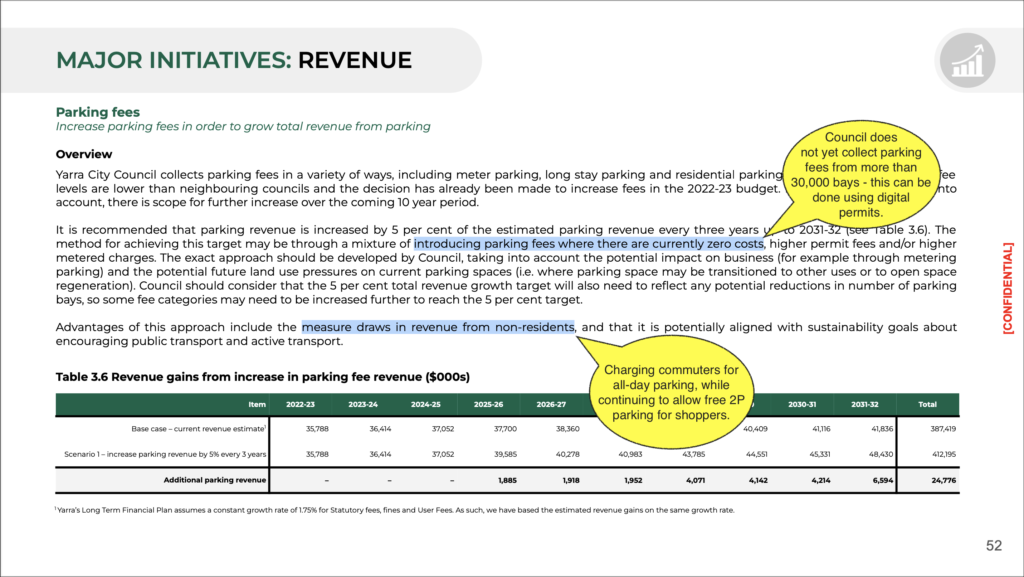
Overall, we think the consultants did a good job in the brief period of time (two months) and identified a large range of reforms that, once implemented, will ensure Council’s financial sustainability. Changes to on-street parking is one of the necessary reforms. The AtticusNow report was delivered to Council in 2022, and some of the recommendations have been implemented, such as the separation of waste charges. It’s pleasing to see that Council has begun the work to reform parking, as we can see from some actions in the Annual Plan 2024-25, including a Parking Services Systematic Review, and Parking Digitalisation. We only wish that these reforms could be delivered faster.
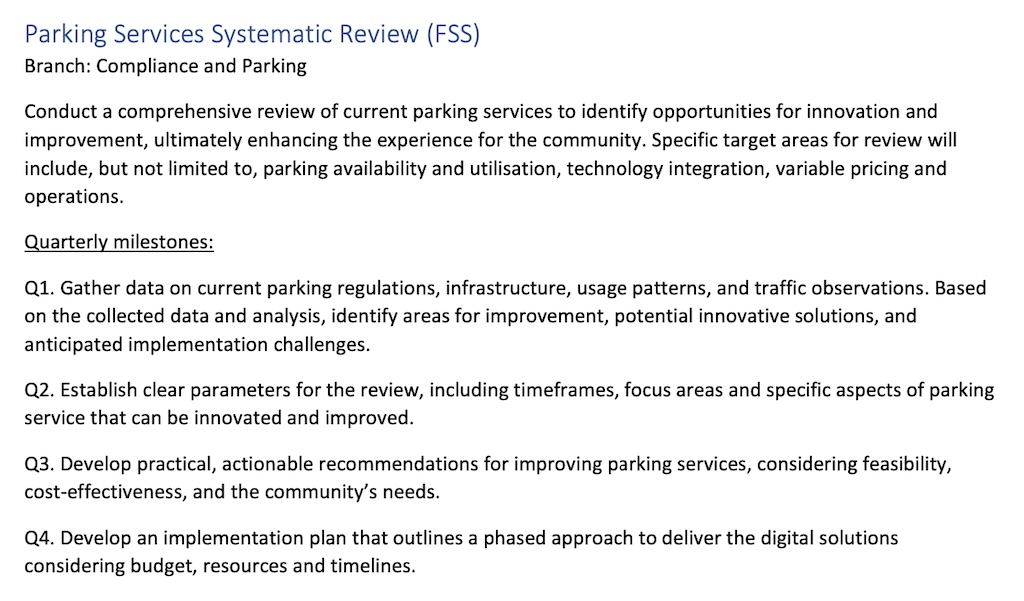
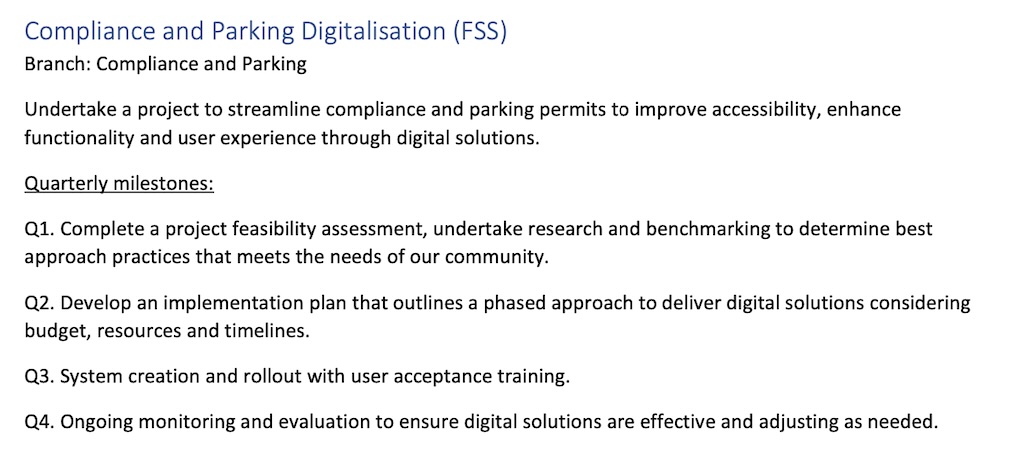
Published 13th July 2024

